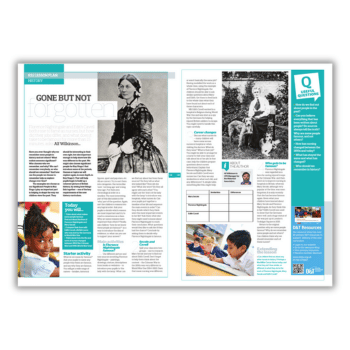Florence Nightingale and Edith Cavell both rose to fame as nurses. This KS1 significant individuals lesson examines what it takes to be famous for more than 15 minutes…
Have you ever thought why we remember some people in history and not others? What makes someone significant? Who chooses who we remember, and why?
We can’t remember everybody, so who should we remember? And how can the people we choose to remember help us explore change over time?
The examples we choose as our Significant People in Key Stage 1 play an important part in helping to shape the way our children view the past.
They should be interesting in their own right, but also important enough to help show how life was different in the past.
We might also choose significant people for Key Stage 1 that introduce some of the periods, themes or topics we will explore again, in more depth, in Key Stage 2.
That will help pupils begin to build up a coherent picture of British history, by seeing how things link together – one of the key requirements of the history curriculum.
KS1 significant individuals learning objectives
- Think about what makes some people famous
- Find out about the lives of Florence Nightingale and Mary Secole
- Compare their lives with Edith Cavell, a British nurse who was shot by the Germans in World War One
- Think about how the life and work of nurses changed between 1854 (the Crimean War) and 1915 (World War One)
Starter activity
What do we mean by ‘famous?’ Ask your pupils to name any people they think are famous, and say why they are famous. You will get a wide range of names – families, historical figures, sport and pop stars, etc. All are correct.
Try to sort them into categories. Use terms like ‘now’, ‘not long ago’ and ‘a long time ago’. Put them into chronological order on a timeline.
The most interesting part of this discussion is the ‘why’ part of the question. Again, sort the children’s reasons into any logical order.
Ask your pupils to decide which reasons are most important and try to reach a consensus as a class. Why are some reasons more important than others?
Finally, ask children “how do we know these people are famous?” as a way to introduce the idea of evidence, i.e. what can you use to support your answer?
Alf Wilkinson is CPD Manager for the Historical Association.














